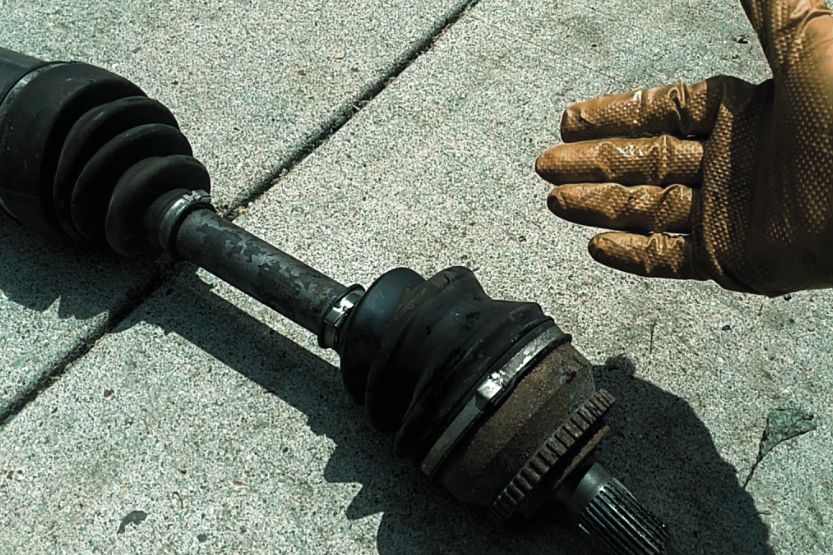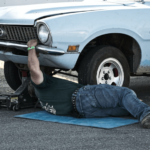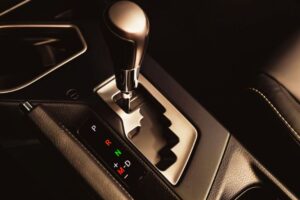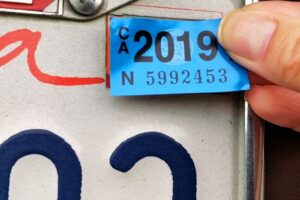The road is flat, but why is your car bouncing around like a boat rocked by choppy waters? It’s not the road’s condition, but it is your car that’s the problem. In this article, I’ll discuss car shakes when slowing down – common causes.
Several reasons your car can shake when you are slowing down. They include the following:
- Bad brakes
- Worn-out or bent car parts
- Tire issues
- Worn-out motor mounts
- Bad spark plugs
- Low transmission fluid level
- Suspension system needs repair and maintenance
As many things can cause your vehicle to vibrate while you are slowing down, you need to carefully diagnose the actual problem so you can take the proper fix to put this problem behind your back. You will need the expertise of a certified car mechanic to do this.
Read on to learn more about why your car vibrates while slowing down and the details for each of these causes.
Car Shakes When Slowing Down

Here are some of the usual reasons why your car can vibrate when you are slowing it down:
- Your brakes are failing badly
- Some of the components of your vehicle are either bent or worn out
- Your tires are having some issues
- Your car’s motor mounts are already broken
- You are still using faulty spark plugs
- The transmission level of your car is already low
- Your car’s suspension system needs maintenance or repair
Since there are lots of things that can cause your car to vibrate, you have to pinpoint the actual cause to be able to solve the problem. For this reason, you need to call for a qualified mechanic who can make the appropriate diagnosis so they can recommend the proper fix.
When you notice that your car is vibrating at a certain speed, there’s a great chance that it can be due to damaged bearings or a loose part of the suspension system. This is usually the case if your car shakes when it hits a bump. The shaking continues until you stop the vehicle.
While there are several reasons why your car can vibrate while you are slowing down, it should not deter you from pinpointing the actual cause. A certified mechanic is the best person to do this. Call a qualified mechanic, and you will be on your way to solving the problem once and for all.
Why Does a Vehicle Shake When Braking?
Broken or Warped Rotor
If your car uses disc brakes, the vibration is likely caused by a broken or warped rotor. This is a regular occurrence because of the wearing out of this brake component.
Since you are putting pressure repeatedly from the brake pad, the rotor will eat up the rotor material in the area where it usually makes contact.
Heat and Friction
The heat and friction generated by the braking action can cause the warping of the rotor. You can resurface the rotors to bring them back to their original state and reduce their chances of warping. However, if there is already too much damage on the rotor material, it can warp again.
Idle Car
Lack of use is also a common cause of brake rotors developing problems. If you have not driven your vehicle for quite a while, the rotor part under the brake pad can develop rust. This rotor section can also gather chipped pieces of the brake pad.
Faulty Drum Brakes
If your car is equipped with drum brakes that are already out of shape, they can cause your vehicle to vibrate when you step on the brakes. The drum brakes should be measured to check if they are still round in shape.
If the drum brakes are out of their standard specs, you need to check if they are already damaged or if there is scouring on their edges. If they are out of shape, you can still reshape them to restore their original round shapes.
This is done through a machining process, where their round edges are fed into a machine with sharp knives or grinders that can repair the deformities on their rounded edges.
Why Does Your Car Shake When Decelerating?

To help you clearly understand the causes of car shaking when slowing down, here are their respective details:
1. Malfunctioning or Bad Brakes
If the shaking occurs every time you step on the brakes, your brakes will likely malfunction. Many things can cause your braking system to malfunction. One of the usual ones is if your brake rotor is warped.
This thing can happen because of normal wear and tear. The rotor is inside the wheel, and each time you step on your brakes to slow down, the brake pads press against the rotor. That’s the reason why the rotors can warp.
The pressing against the rotor also causes the brake pads to wear out. If these pads are already out of shape, they will cause your vehicle to vibrate when you step on your brakes. Bad brake rotors can also damage your car’s suspension system and tires.
2. Worn-out or Bent Car Parts
If any part of your car is damaged or bent, you can also experience shaking each time you slow down. Car accidents can cause the bending of the part that is directly hit. So, if you have figured in a car accident, check the area where you are directly hit.
Some of those car parts could be bent. It pays to have your car checked and repaired if you have been in an accident.
3. Tire Problems
Your tires are primarily the things that keep you tracking the road safely. If they have problems, your ride will be badly affected. Regarding vehicle vibration, tires can be the culprit for several reasons.
Unbalanced Tires
If your tires are not balanced, you will experience bad rides, including shaking. The reason is that the tires are running unevenly, causing your vehicle to shake. Even your wheel alignment will be badly affected if this problem exists, leading to a much worse ride.
Loosely Mounted Tires
Tires that are loosely mounted on their rims or wheels could also lead to the shaking of your car. You can prevent this problem by ensuring that all the tire lugs are tight on all your wheels and that all your tires are tightly secured on their wheels or rims.
Damaged Rims
Damaged rims can also affect your ride quality. A broken rim will badly affect how a tire sits on the wheel. What will happen is that one side of the tire is in touch with the ground, while the other side isn’t. That is the right formula for car vibration.
Worn-out Tires
Lastly, be sure that all the treads of your tires are still thick. Too much wear on tires is not safe. You don’t have full road traction with these tires, not to mention that they can make your car vibrate each time you slow down.
4. Worn Out or Damaged Engine Mounts
Broken or worn engine mounts can also cause your car to shake when decelerating. If this is the condition of your engine mounts, it will allow the engine to shift its movement in the hood. This problem is easy to diagnose by just visually inspecting the engine mounts.
If you find that they are broken, they are the ones that are causing the problem. It would be best if you had them repaired as soon as possible before they can create more severe problems for your engine.
5. Bad Spark Plugs
Spark plugs can make your engine function smoothly or roughly. If your engine is not getting sufficient sparks from the spark plugs, you will feel it with your engine running unevenly. Your idling will be rough, and your ride will be very uncomfortable.
Perhaps the spark plugs are not the problem. But how come you have your vehicle shaking every time you slow down? If this is the situation, the likely culprit is the spark plug wires. They can be loosely connected, or their connections were cut accidentally.
6. Insufficient Transmission Fluid
If the reservoir of the transmission fluid shows that the level is way down the minimum, it could also cause your vehicle to vibrate each time you hit the brakes. Or perhaps the transmission fluid level has gone too low because of a fluid leak somewhere in the system.
You have to fix the issue right away because it can affect the operation of your car’s transmission system. Take your vehicle to a qualified mechanic so they can inspect it and make the necessary fix.
7. Problems with the Suspension System
If your steering wheel shakes every time you change speed, it could be caused by a problem in your car’s suspension system. This is an urgent situation where you can’t wait until you are sure about the cause because it can lead to more severe problems.
Perhaps there are issues with your tie rods, bearings, shock absorber struts, or ball joints. This involves several suspension parts, so you have to act at once to resolve the issue before it develops into a more severe problem.
8. Other Possible Causes

Aside from the above causes, there are other reasons why your car shakes when you shift to low gears:
Broken CV Joints
These joints are essential car parts because they can’t move without them. The CV joints connect the wheels of your car to the transmission. If even one of these joints is faulty, it could be the reason why your vehicle is vibrating when you slow down. This condition also damages your tires.
Malfunctioning Axle Joints
These joints connect the wheels to your car. They are there so that your vehicle will run smoothly. If worn out or damaged, it will cause damage to the other car parts and the uneven wearing out of your tires. If these joints fail, you will hear rattling noises while your car is in motion.
Worn Out Tie Rod End Joints
One of the common causes of cars vibrating when slowing down is the wearing out of the tie rod end joints. If not corrected promptly, the problem can get worse. These joints connect the steering wheel to the wheels of your car.
As such, if they malfunction or are damaged, your car will shake while you are stepping on the brakes or shifting to low gears. Since they are connected to the steering wheel, it will also affect your steering wheel badly if they are not fixed promptly.
In Closing
If your car is vibrating when you are slowing down, it could be one of several reasons. Some of the causes of this issue are the following:
- Brakes are malfunctioning
- Worn-out or bent car parts
- Tires are having some problems
- Motor mounts are already worn out
- Spark plugs are not functioning as they should
- Transmission fluid level is already low
- Problems in the car’s suspension system
These are not the only reasons for your car’s shaking problem. For this reason, you need the expertise of a certified car mechanic to diagnose and pinpoint why this is happening to your vehicle.




![5.7 Hemi Problems [7 Most Common] 5.7 Hemi Problems](https://roadsumo.com/wp-content/uploads/2021/11/5.7-Hemi-Problems-150x150.jpg)
![Ford 6.2 Engine Problems [5 Most Common and How to Fix] ford 6.2 engine problems](https://roadsumo.com/wp-content/uploads/2021/06/ford-6.2-engine-problems-150x150.jpg)



